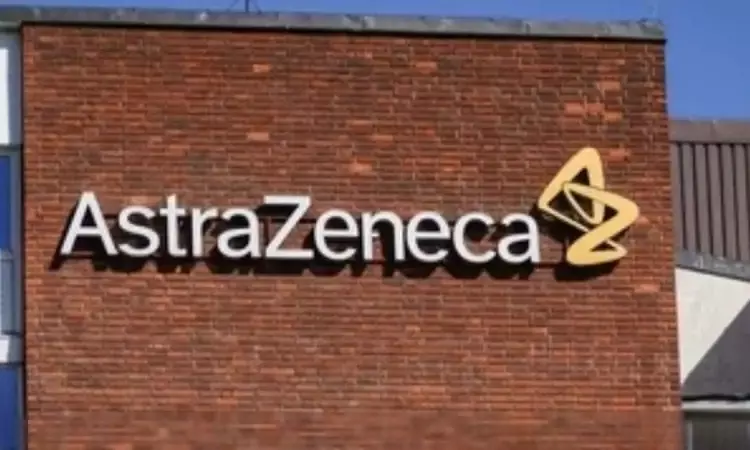- Home
- Medical news & Guidelines
- Anesthesiology
- Cardiology and CTVS
- Critical Care
- Dentistry
- Dermatology
- Diabetes and Endocrinology
- ENT
- Gastroenterology
- Medicine
- Nephrology
- Neurology
- Obstretics-Gynaecology
- Oncology
- Ophthalmology
- Orthopaedics
- Pediatrics-Neonatology
- Psychiatry
- Pulmonology
- Radiology
- Surgery
- Urology
- Laboratory Medicine
- Diet
- Nursing
- Paramedical
- Physiotherapy
- Health news
- Fact Check
- Bone Health Fact Check
- Brain Health Fact Check
- Cancer Related Fact Check
- Child Care Fact Check
- Dental and oral health fact check
- Diabetes and metabolic health fact check
- Diet and Nutrition Fact Check
- Eye and ENT Care Fact Check
- Fitness fact check
- Gut health fact check
- Heart health fact check
- Kidney health fact check
- Medical education fact check
- Men's health fact check
- Respiratory fact check
- Skin and hair care fact check
- Vaccine and Immunization fact check
- Women's health fact check
- AYUSH
- State News
- Andaman and Nicobar Islands
- Andhra Pradesh
- Arunachal Pradesh
- Assam
- Bihar
- Chandigarh
- Chattisgarh
- Dadra and Nagar Haveli
- Daman and Diu
- Delhi
- Goa
- Gujarat
- Haryana
- Himachal Pradesh
- Jammu & Kashmir
- Jharkhand
- Karnataka
- Kerala
- Ladakh
- Lakshadweep
- Madhya Pradesh
- Maharashtra
- Manipur
- Meghalaya
- Mizoram
- Nagaland
- Odisha
- Puducherry
- Punjab
- Rajasthan
- Sikkim
- Tamil Nadu
- Telangana
- Tripura
- Uttar Pradesh
- Uttrakhand
- West Bengal
- Medical Education
- Industry
AstraZeneca Soliris recommended for nod in EU by CHMP for children, adolescents with refractory generalised myasthenia gravis

Soliris is a first-in-class C5 complement inhibitor.
Cambridge: AstraZeneca has announced that Soliris (eculizumab) has been recommended for marketing authorisation in the European Union (EU) for expanded use to include the treatment of refractory generalised myasthenia gravis (gMG) in children and adolescents aged six to 17 years who are anti-acetylcholine receptor (AChR) antibody-positive (Ab+).
The Committee for Medicinal Products for Human Use (CHMP) of the European Medicines Agency (EMA) based its positive opinion on results from the Phase III trial of Soliris in paediatric patients with refractory gMG.
In the trial, Soliris demonstrated clinical benefit in paediatric patients aged six years and older with refractory gMG who previously failed immunosuppressive treatment and continued to experience significant unresolved disease symptoms. Soliris showed significant improvement in the primary endpoint of change from baseline in Quantitative Myasthenia Gravis (QMG) total score at week 26, a physician-reported scale assessing disease severity and function (-5.8 [95% CI -8.4, -3.13], p<0.0004).
gMG is a rare, debilitating, chronic, autoimmune neuromuscular disease that leads to a loss of muscle function and severe weakness.
John F. Brandsema, MD, Children’s Hospital of Philadelphia and primary investigator in the Phase III trial of paediatric patients, said, “Onset of gMG in paediatric patients is extremely rare and complex to manage. As the disease progresses, patients may become nonresponsive to standard treatments, leaving them at risk for serious complications. The Phase III clinical trial results in patients aged 12 to 17 years with refractory gMG show the efficacy of C5 inhibition in substantially reducing disease severity and symptoms, potentially transforming how this debilitating disease is managed in certain paediatric patients.”
Marc Dunoyer, Chief Executive Officer, Alexion, said, “gMG can impact patients’ ability to walk, talk, breathe and participate in routine activities, and with no existing targeted therapies for children and adolescents with this condition, families have long been hopeful for a treatment. If approved, Soliris would be the first targeted treatment for paediatric patients living with refractory gMG in Europe, offering the possibility of improved outcomes and quality of life.”
The efficacy and safety of Soliris in paediatric patients aged six years and older is consistent with the established profile of Soliris in clinical trials involving adults with refractory gMG. In the Phase III clinical trial of paediatric patients, the majority of reported adverse events were considered mild or moderate.
Soliris was first approved in the EU in 2017 for the treatment of certain adults with gMG and is also approved for certain adults with gMG in the US, China and Japan. Regulatory submissions for Soliris for the treatment of paediatric patients with gMG are currently ongoing or planned with multiple health authorities.
Read also: AstraZeneca Soliris approved in China for adults with refractory generalised myasthenia gravis
Ruchika Sharma joined Medical Dialogue as an Correspondent for the Business Section in 2019. She covers all the updates in the Pharmaceutical field, Policy, Insurance, Business Healthcare, Medical News, Health News, Pharma News, Healthcare and Investment. She has completed her B.Com from Delhi University and then pursued postgraduation in M.Com. She can be contacted at editorial@medicaldialogues.in Contact no. 011-43720751


